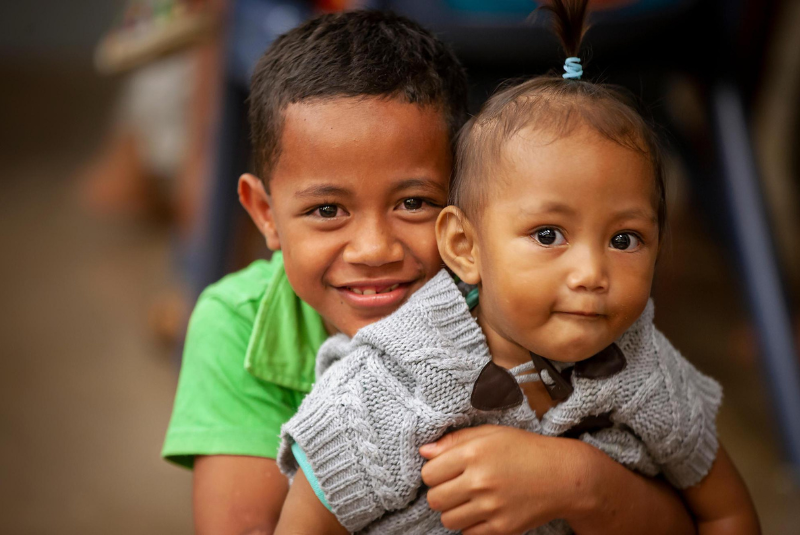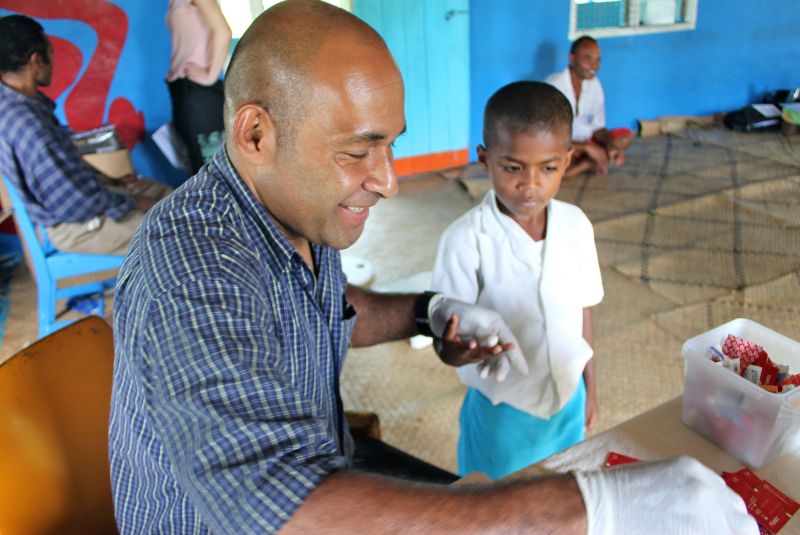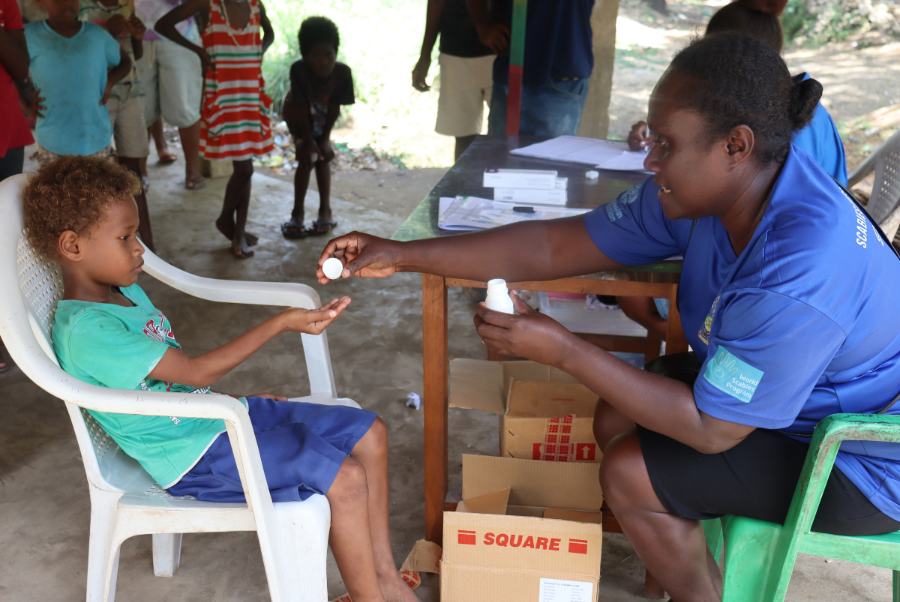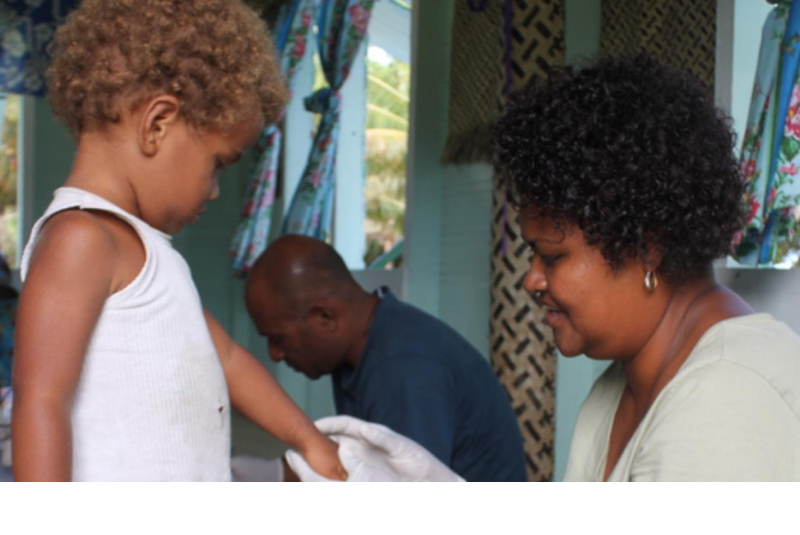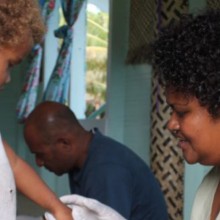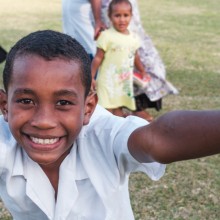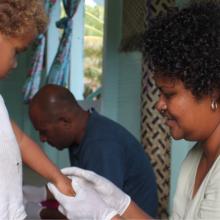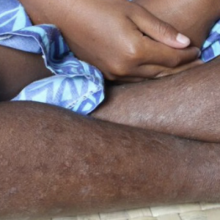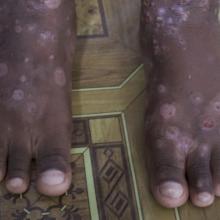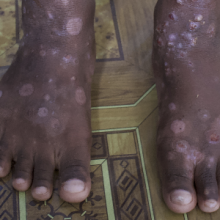Scabies and neglected tropical diseases
Scabies is a contagious tropical skin condition caused by tiny mites that burrow under the skin. It causes intense itch, discomfort and can be fatal.
Scabies affects more than 200 million people at any one time.
Watch as Nick asks Professor Andrew Steer about how MCRI is changing the lives of children around the globe.
Watch as Nick asks Professor Andrew Steer about how MCRI is changing the lives of children around the globe.
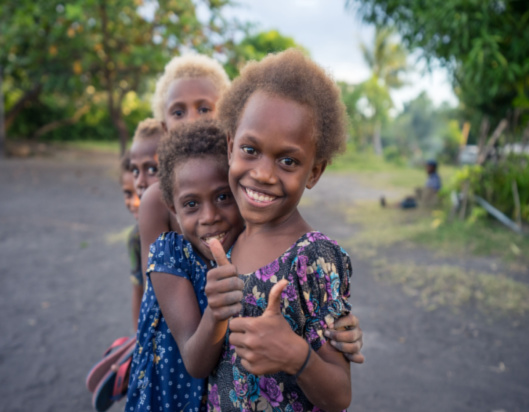
Scabies
The parasites that cause scabies are called Sarcoptes scabiei. They burrow under the skin and lay their eggs, causing extremely itchy rashes.
A child with scabies can be so itchy that they struggle to sleep, which can affect concentration and lead to poor school attendance. They can even bleed from scratching which causes open sores that can lead to more skin infections and in severe cases, blood poisoning, kidney failure or rheumatic heart disease.
Scabies appears as red tracks, lumps or blisters, often in the folds of the skin. It spreads by skin contact, meaning family groups and children who play together can quickly pass on the infection.
Stopping scabies means treating entire families, communities and populations at the same time.

Who does it affect?
Who does it affect?
- No one knows the exact number worldwide, but global health experts estimate scabies affects more than 200 million people at any one time and that over 450 million new cases occur annually.
- About one in five people and up to 50 per cent of children in the Pacific are affected at any one time.
- The mites thrive in hot, crowded conditions, spreading easily in schools, villages, refugee camps and prisons.
- Scabies can be widespread in some low-income communities, including remote Indigenous populations in northern Australia.
- Anyone can contract this tropical disease but children and the elderly are particularly vulnerable.
Our scabies research
Our scabies research
We created and are leading the global World Scabies Program to better prevent and treat scabies and equip communities with tools and resources to detect, monitor and control scabies.
The program is working with health ministries to assess the burden of disease, implement control strategies and strengthen the health system to monitor and manage scabies. Activities have included mass drug administration in Fiji and the Solomon Islands, where everyone in the community, whether affected or not, received treatment at the same time to reduce transmission.
These nationwide scabies elimination programs using a single community-wide treatment will be a model for other nations to also wipe out scabies.
In 2021 the World Health Organization (WHO) designated our Tropical Diseases group as its first Collaborating Centre for Scabies Control. Over the next four years, the centre will help the WHO with technical advice for scabies control.
We will do this by mapping the global population affected, developing training materials to support control program activities and advocating for increased country access to scabies medications.
Watch as Professor Andrew Steer explains more about the World Scabies Elimination Program.
Impacts of our research
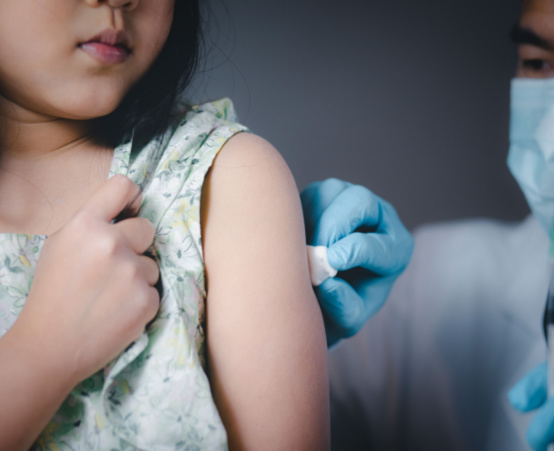
Impacts of our research
- A game-changing study showing that ivermectin, when given to whole communities, can reduce scabies by 90 per cent after one round of treatment.
- Documenting high infection rates in Pacific nations, parts of South America and Africa, and in Australian, New Zealand and Canadian Indigenous communities.
- The creation of an international database of scabies photos and a device to convert a smartphone into a digital diagnosis tool, enabling diagnosis in children anywhere, any time, at a much lower cost than before.
- Co-authoring the first National Healthy Skin Guideline, a comprehensive set of guidelines for skin conditions that affect remote Aboriginal and Torres Strait Islander communities.
In 2019, when Macquarie Group awarded us $10 million to implement the World Scabies Program, it became the first global program dedicated to eliminating scabies.
The funds will initially help us and our partners to eliminate scabies in Fiji and the Solomon Islands by:
- Scaling-up provision of mass treatment in Fiji and the Solomon Islands.
- Supporting affected communities and health workers to introduce elimination programs.
- Mapping global populations affected.
- Establishing affordable and reliable access to effective treatments.
Our vision
Our vision
We want to end the suffering caused by this devastating skin condition. Through our research teams’ expertise, leadership and partnerships, the tools are in place to make scabies elimination a reality for children and their families. Apart from dramatically improving health, elimination will boost economies, school and work attendance.
Donate to MCRI
Help our researchers make life-changing discoveries in child health.

